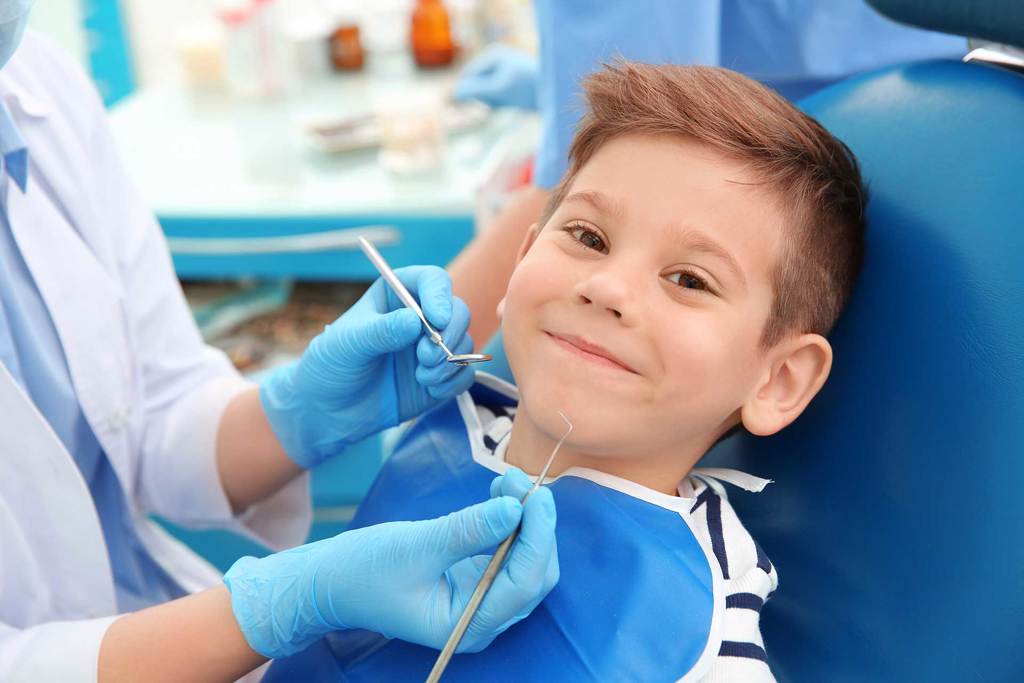Pediatric dentistry (pedodontics)
Vinci Clinic offers adaptation visits during which even the most distrustful child can get accustomed to the practice and the doctor – before treatment is actually needed. We approach each young patient individually, while our empathic team are fully committed to making every appointment as little stressful as possible.
For a dentist, a child is a grateful yet difficult patient. First of all, because they don’t control their behavior and express their feelings in a very direct way. They can, for example, firmly refuse to open their mouth, riddle the dentist with many strange questions or suddenly get up and run away from the chair, crying desperately. It gets even more complicated by the fact that children at different stages of development react to the same stimulus in a completely different way – something that is considered frightening for a three-year-old (for example, the sight of a white apron) won’t arouse much emotion in a nine-year-old.
A child’s visit to the dentist’s office can be an extremely stressful experience – not only for the child, but also for their parents, and the entire medical staff.
In order to deal with a young patient’s violent emotions and consistently carry out treatment, the dentist must have the competencies that facilitate contact with young children, such patience, empathy, firmness, persuasion. At Vinci Clinic, we always strive to build a mutual contact with a child from the very beginning with an intention to provide them with the greatest possible psychological comfort. This is why we first invite your child to an adaptation visit.
We also offer:
- painless treatment of deciduous teeth under anesthesia
- ozone therapy of dental caries
- fluoride treatment of teeth with products containing high fluoride concentration (varnishing, strawberry foam)
- sealing of fissures and cavities
We know all too well how big a role parents play in preparing their child for an appointment at the dentist’s office. Therefore, we’re happy to answer their questions and dispel any doubts. During an adaptation visit, we explain:
- how to properly care for your child’s teeth
- how to talk to your child about the treatment ahead
- how to cope with the symptoms and signs of dentophobia
The first visit is of critical importance
The first meeting with the dentist is particularly important, as it determines your child’s subsequent attitude toward treatment. Both the dentist as well as parents must do their best to make the visit to the dental office a pleasant experience for the young patient; the top priority should always be to make sure that the child won’t associate the dentist only with pain, fear and suffering.

